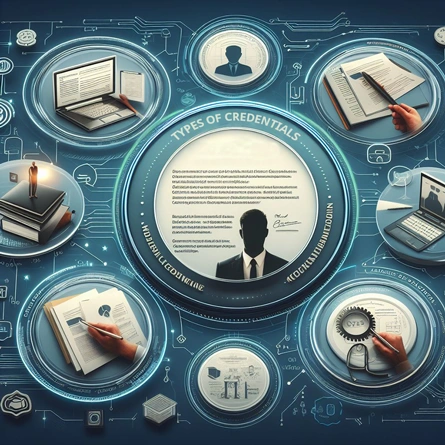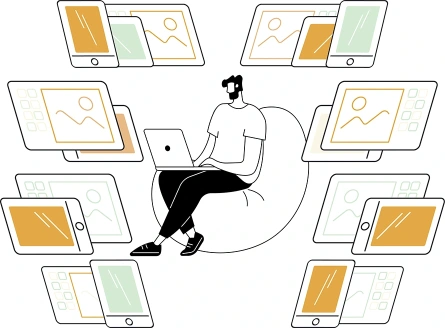In today’s complex professional and academic landscape, credentials are more than a necessity, they are often the very key to unlocking job and educational opportunities. By dictionary-definition, a credential is essentially proof of who you are and what you have achieved.
Whether it’s for a university degree, or industry certification or license, each credential plays a unique role in mapping out and proving a person’s competence, authority, and worth. However, with globalization and the increasing mobility of professionals and students worldwide, the question of their validity is becoming increasingly pressing. How is a credential compared with others, and how is one obtained in one country recognized and validated in another? What is their value in today’s extremely diversified and competitive markets?
This article delves deep into the world of credentials, exploring their nature, importance in various contexts, and the methods by which they are validated, especially internationally. Our goal is to provide a comprehensive guide to navigate this crucial field, offering insights for professionals, academics and students seeking to maximize the impact of their achievements.
Types of Credentials

This image was generated using AI to represent the following paragraph.
Credentials can be split into several main categories, according to use:
- Identity: These prove who you are in certain contexts, and could be anything from a passport to a driver’s license, proof of age, bus pass, library card, or account username and password.
- Academic: These could be a secondary school diploma, undergraduate college degree, such as a bachelor’s, a postgraduate degree, such as a master’s or doctorates, or a specialized higher-education qualification required to practice a certain profession, such as law or medicine. These certificates can attest to both formal theoretical and practical schooling, and are commonly required for entry into a certain profession or advanced study program.
- Professional: Licenses are essential in many fields, such as medicine, engineering, and aviation, where specific certification is required to practice a profession legally and at a certain level. Certifications, on the other hand, prove a mastery of a certain set of specialized skills, often in technical or technological fields.
- Work experience, references and testimonials: In many sectors, documented practical experience, references and testimonials are also considered a type of credential, especially when it details specific expertise in a certain field.
- Digital: With the advance of digitalization, e-badges and online certifications are becoming essential, and offer a flexible, accessible and immediate way to demonstrate expertise and qualifications, including those obtained through online platforms.
Together, these various categories of credential play a crucial role in proving a person’s skills and competences, and therefore in facilitating the advancement of their careers..
The Importance of credentials in a resume
Including credentials in a resume is crucial for highlighting and lending credibility to a candidate’s expertise, which is particularly important in highly competitive industries. Recruiters and employers will use this information to quickly assess a candidate’s fit for the requirements of a certain role.
In fields such as technology, health and academia, where specific skills or advanced training are necessary, relevant and easily validated credentials can make all the difference between a candidate and their competitors. They not only serve as proof of technical, theoretical and practical expertise, but also reflect an individual’s commitment to career development and continuous training. A well-documented resume with appropriate credentials significantly increases the chances of securing an interview and then getting the desired position.
Validity and equivalence

This image was generated using AI to represent the following paragraph.
Checking the validity of credentials is an essential process, especially for qualifications obtained abroad. Then, it’s important to check their equivalence across different educational and professional systems. Their rigorous evaluation can help employers and higher-education institutions see that the presented certificates are authentic and their validity is comparable to recognized standards. This will often involve a detailed analysis of curricula, grades obtained, and often proof of relevant internships and job experience.
In the context of globalization, credential evaluation processes play a crucial role for academics and professionals seeking a study or job position abroad. The stakes are high, as an inaccurate evaluation can impact the perceived suitability of a job candidate for a specific position and therefore an individual’s career prospects.
Technologies
The rapid development of modern technologies has significantly influenced the methods of issuing credentials. Historically, they were primarily issued in paper form, such as as printed diplomas and certificates on special paper. However, in the information age, there has been a significant transition to digitalized formats, with e-badges and online certifications now commonplace, offering greater accessibility, user-friendliness, and ease of sharing. In particular, they are easy to add to profiles and portfolios on university and employment platforms and social media, such as LinkedIn.
They can be multilingual and so include additional languages beyond English. And, since they are unconstrained by the limited word count of traditional paper certificates, can list all the individual modules, grade data, details and competences that make up a certain qualification.
Furthermore, certain formats can offer greater security by being impossible to copy, counterfeit, or modify. These tools, supported by advanced management systems, can therefore guarantee the full integrity and verifiability of credentials, and respond to current needs for rapid and reliable authentication in the educational world and the job market.
Examples of Digital Credentials

Digital credential software, like the solutions developed by BCdiploma, provide a cutting-edge way to certify academic and professional achievements with security, transparency, and efficiency. BCdiploma specializes in providing secure, blockchain-based credentials, ensuring their authenticity and ease of verification. These can be used to validate degrees, certificates, qualifications and micro-certifications, all managed and stored in a completely tamper-proof format. Such technology not only simplifies the process of sharing credentials with employers and educational institutions, but also ensures the longevity and full accessibility of these vital records. The use of blockchain in issuing credentials is driving a significant advancement in protecting their integrity and reliability, making them valuable assets in the information age.
Check out BCdiploma’s credentials portfolio and ad-hoc solutions for higher education.
Conclusion: the scope and impact of credentials
In summary, credentials represent much more than a mere series of documents, they reflect and validate an individual’s competence, training, and professional commitment. From their issuing in various formats, including information-age innovations, to their crucial role in resumes, credentials shape career trajectories and facilitate access to education.
Rigorous evaluation and verification of credentials, particularly those obtained internationally, are fundamental to maintaining high standards in today’s globalized world. These processes not only ensure the validity and equivalence of qualifications, but also play a decisive role in building trust and credibility in work and educational circles.
Ressources
Digital credentials and employability: the testimony of Abdoulmajid Moustapha
Web3 Digital Credentials in Academics: Everything You Need to Know to Get Started
